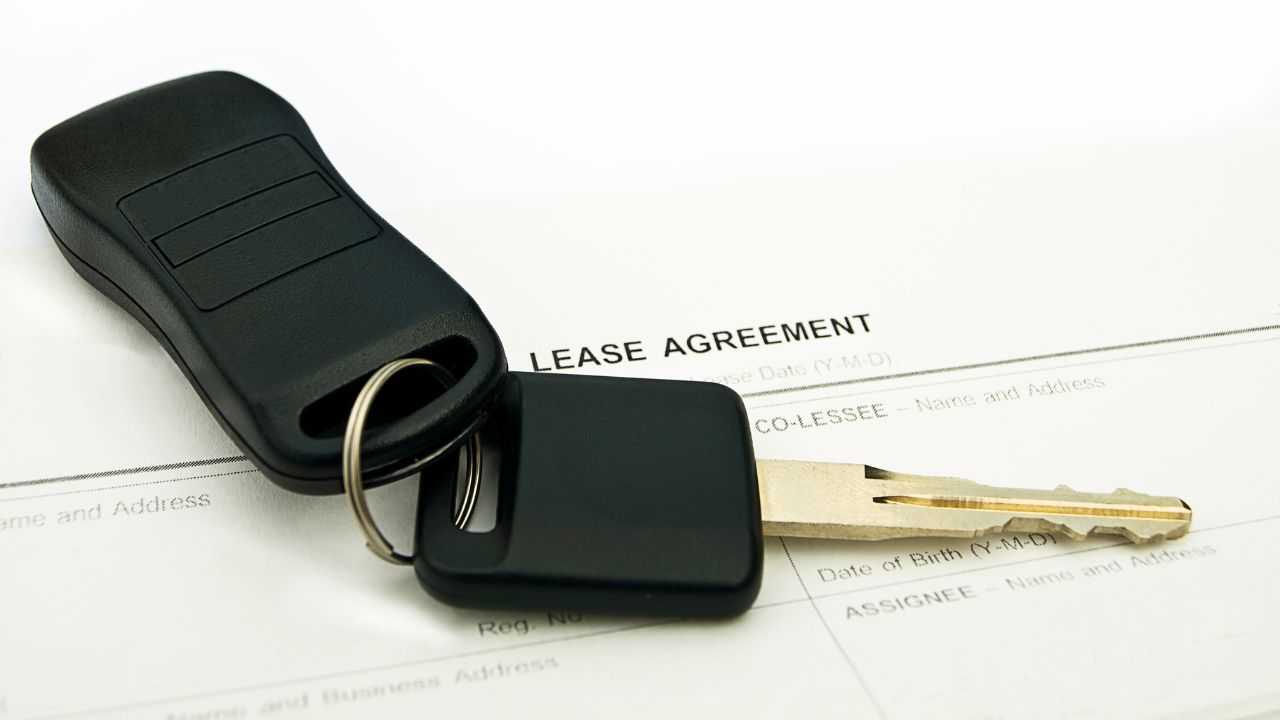Insuring a leased car often costs more than insuring a car that’s owned outright because most leasing companies mandate comprehensive auto insurance policies. However, Experian suggests that whether you lease or buy your car shouldn’t significantly affect your auto insurance rates. Several factors, such as driving history and payout amount in case of an accident, determine the cost of insuring a leased vehicle. Despite the required coverage levels and lease terms that may inflate insurance costs, it’s advisable to compare rates from different providers before selecting a policy.
What is Car Leasing?
Car leasing is a contract. One party pays a monthly fee to an individual or company (the lessor). In return, they get the use of a car. This agreement usually lasts 2-4 years and involves a large down payment. The lessee cannot make major changes to the car. When the lease ends, they no longer have any liability.
Auto Credit Express states that leasing a car may have a higher insurance premium than buying one. This depends on the lease agreement. Generally, leased cars require more coverage than purchased vehicles due to the lack of equity in regular financing options.
Benefits of Leasing a Car
Leasing a car can be beneficial. You get access to performance features, such as navigation and safety systems, and nice interiors and exteriors. Plus, the dealership may provide extra services like road assistance or coverage for mechanical breakdowns. You can upgrade your car more often, since lease terms usually last two or three years.
However, there may be additional costs. Long leases increase the risk of accidental damage, and some repairs must be shared by all lessees. In some states, gap insurance coverage is required for long-term leases.
Potential Drawbacks of Leasing a Car
Buying a car has lots of factors to consider. Leasing can be cheaper for payments and repairs, but insurance for leased cars can be more expensive. Auto Credit Express states that premiums may be higher for leased cars than those bought with cash or financing. This is because the leasing company retains interest until the lease is done.
You may have limited choices of an insurance provider. Depending on your area, you may not get special coverage from the leasing company’s provider. Before signing the lease, read through all documents to make sure there’s no gap in coverage. That way you won’t be stuck with extra costs during an accident.
Factors That Can Affect the Cost of Insurance for Leased Cars
Leasing a car affects insurance costs. Auto Credit Express says the lease length, deductible amount, coverage limits, and car type all matter.
- Longer leases usually mean higher premiums.
- Higher deductibles usually mean lower premiums.
- High-risk cars, like luxury or sports cars, usually cost more to insure.
- Increasing coverage limits raises premiums too.
- If you buy additional coverage, it might cost more than the company’s suggested coverage limit.
To get the best value, research and compare quotes from different companies.
How to Get the Best Insurance Rates for Leased Cars
Before you lease a car, consider insurance costs. Auto Credit Express says it could be higher than buying one. It may even be difficult to get coverage. Lease payments are higher. Modifications and usage may be restricted. Shop around for the best insurance rate to save money. Here are tips:
- Compare quotes online to get the best deal. Choose the right Coverage Type and Level.
- Look for discounts based on location or safety features.
- Increase Deductibles to lower premiums. Only if you can afford them in case of a claim.
- Get Gap Insurance for leased cars.
- Review your policy regularly. Check if the information is up-to-date. Compare the current rate with others for negotiation.
According to Auto Credit Express: Leasing a Car May Result in Higher Insurance Premiums
When it comes to insurance and leasing a car, there can be risks. Auto Credit Express states that insurance premiums may be higher for leased cars. This is because the lessee typically does not own the car, so there is no comprehensive or collision coverage. This coverage normally reduces insurance costs and protects the car.
The lease agreement might require gap insurance or personal injury protection (PIP) depending on the state. Gap insurance covers the difference between what is owed on the car loan and what an insurance company pays out if there is a total loss or theft. PIP takes care of medical expenses and lost wages for people who are hurt.
Conclusion
Generally, insurance for leased cars may be a bit pricier due to leasing agreements and added risk for insurers. Lenders still have financial obligations to meet, so they must factor this into their rates.
Research different providers and learn what discounts they offer, plus which plan best fits your needs. Understand all factors that come into play when searching for auto insurance. This helps you get the best rate and maximum protection.





